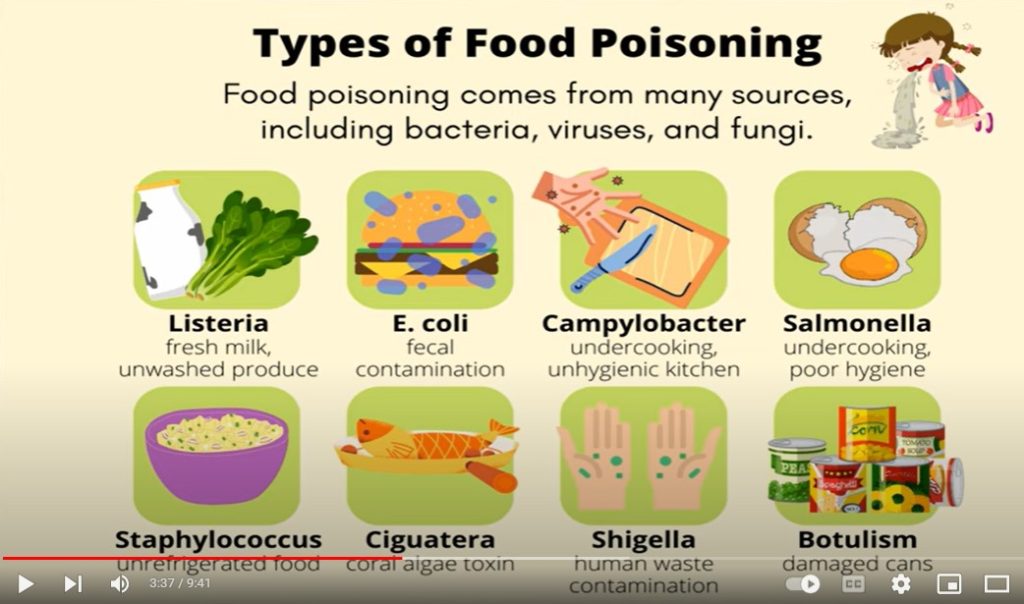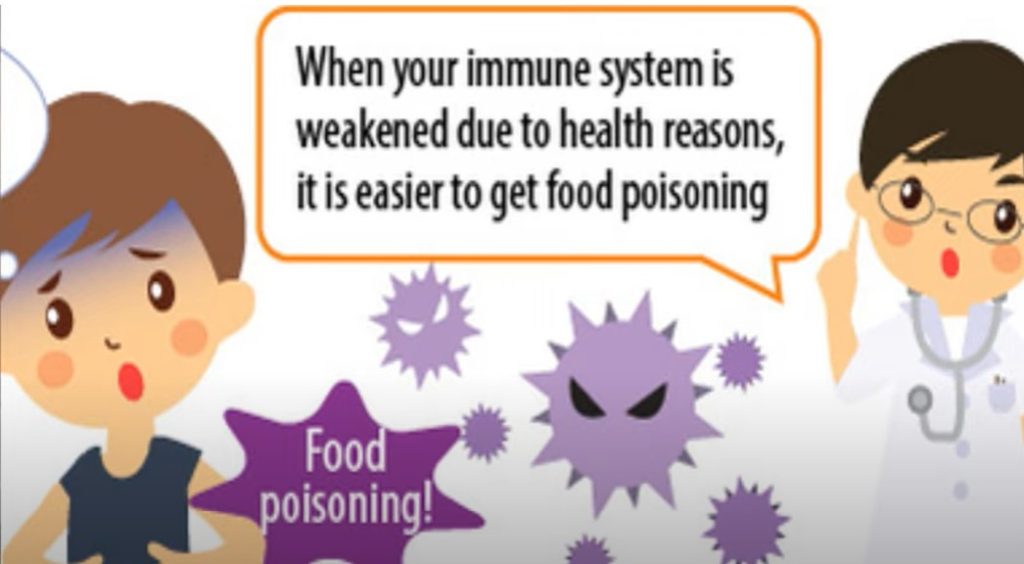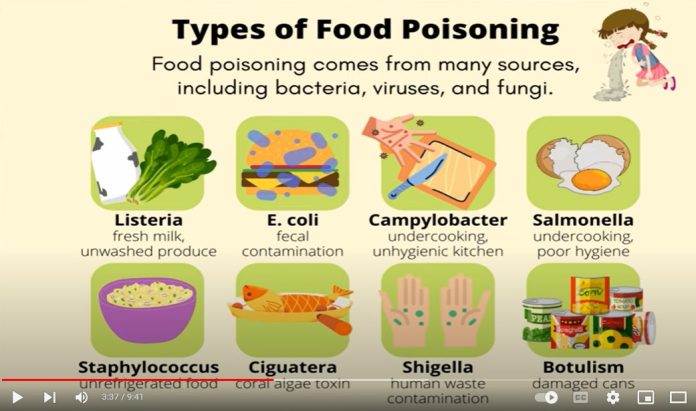Food poisoning/Foodborne illness
The consumption of contaminated food results in food poisoning. Typically, it is not severe and most patients recover in a few days without medical treatment. It is typically caused by infectious organisms such as bacteria, viruses, and parasites or their toxins. Raw, ready-to-eat foods like salads or other products might become contaminated.

Sources of food contamination/poisoning
Food can become contaminated from the field to the table at any time. The issue may start while the food is grown, harvested, caught, processed, stored, shipped, or prepared and served.
Food can be contaminated because of the following:
Inadequate cooking of food:
Undercooking or not cooking to the proper temperature. Bacteria are frequently discovered in raw meat, including poultry. Bacteria are usually killed by adequate cooking.
Poor handwashing:
Food can be contaminated by faeces that leftovers on the hands after using the toilet. Other contaminants can be transferred from hands to food during preparation or serving.
Not disinfecting cooking or eating areas:
Contaminants can be spread by unwashed knives, cutting boards, and other common kitchen tools.
Improper storage:
Food that has been kept out at room temperature for a long time can become contaminated. Similarly, if food has been kept in the refrigerator for an extended period, it can spoil. Food stored in an overly warm refrigerator or freezer can also spoil.
Poor processing:
Bacteria can also be found in raw milk and cheese. Bacteria are killed during the pasteurisation process.
Food contaminated by bacteria or a virus causes food poisoning:

Campylobacter is the utmost common reason of food poisoning
- Salmonella
- Escherichia coli
- Vibrio cholerae
- Clostridium botulinum (Botulism)
- Norovirus
- Listeria
Parasites that can live in the intestines, poison, chemicals and toxins of mould can cause food poisoning. Food poisoning symptoms vary with the source of contamination. Commonly it’s nausea, vomiting, watery or bloody diarrhea, abdominal pain, cramps, and fever.
Symptoms of Food Poisoning/ Food Poisoning Symptoms

Mild food poisoning symptoms are
- Nausea
- Vomiting
- Headache
- Diarrhoea that may contain blood or mucus
- Stomach cramps and abdominal pain
- Weakness
- Loss of appetite
- Fever
- Muscle ache
- Chill
Signs and symptoms may start within hours after eating the contaminated food. Sometimes it may begin days or even weeks later. Symptoms may be mild to severe and last a few hours to several days.
Sickness caused by food poisoning generally lasts a few hours to several days.
When to Visit Doctor for Food Poisoning
If the symptoms are severe, visit a doctor. These including:
- Bloody diarrhea
- Diarrhea that lasts more than 3 days
- High fever (temperature over 102°F)
- Vomiting so often that you cannot keep liquids down
- Signs of dehydration include reduced urination, dry mouth and throat, and dizziness when standing.
- Also need visit a doctor if they are pregnant, aged, infant and have other flu-like symptoms. Sometimes, some mild infections can cause problems with pregnancy.
Severe Health Problems for Food Poisoning
Most people have minor illnesses, but some food-borne infections are serious or even fatal. Some people may require hospitalisation, and long-term illnesses can lead to other health issues, including:
- Meningitis
- Kidney damage
- Brain and nerve damage
- Arthritis
- Hemolytic uremia
How long does food poisoning last in adults?
Sickness caused by food poisoning generally lasts a few hours to several days.
Some people may experience health problems for weeks or months after recovering from a foodborne illness. In some cases, they never go.
How long does it take to recover from food poisoning?
Generally, it is recovered within 12-48 hours. It may last for a week in some cases of severe food poisoning.
Can food poisoning recover by itself?

Yes, it is recovered by itself for people with a healthy immune system.
About Author

For more and complete information about poisoning by food, please see the youtube video.
Also Read: Indian cervical cancer vaccine or HPV vaccine

